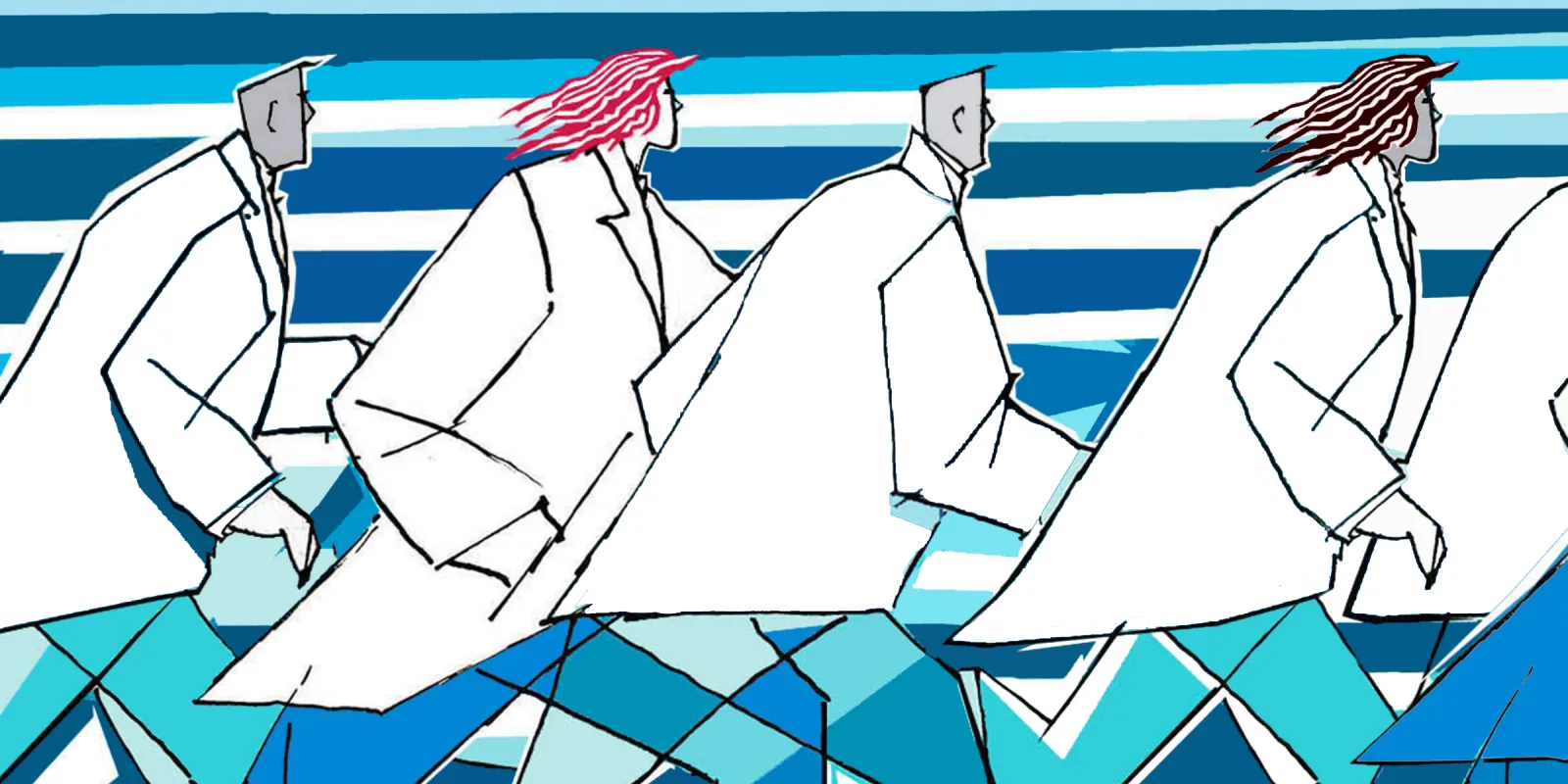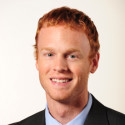“If it’s wet, make it dry; if it’s dry, make it wet.” I can still remember the general surgeon’s playful response when, as a fourth-year medical student, I told him I was going into dermatology. I should say mostly playful, with only a hint of condescension. I suspect it is a rite of passage to hear this phrase at some point in one’s dermatologic training. And now, after four years learning how to make many things dry and many other things wet, I have enjoyed reflecting on the most important lessons I learned (and did not learn) in residency and fellowship.
What We Do Is Important But Easily Misunderstood
As I watched my patient’s wife scroll through her phone’s camera roll, looking for previous photographs to demonstrate how her husband’s abdominal “rash” had evolved over time, I couldn’t help but notice pictures of their young children, one of whom was about the same age as my 3-year-old son. My breath immediately caught in my chest, and for once I was grateful for all of the cumbersome PPE, which now mostly obscured the tears welling in my eyes.
The review of these old photographs of the rash was for the sake of completeness; I had already completed my exam and was relatively confident in the diagnosis – recurrent gastrointestinal adenocarcinoma with cutaneous metastases. My patient, who had previously been diagnosed with GI cancer, was in the hospital due to ongoing nausea and difficulty eating. The recurrence of his malignancy had not yet been identified. Our dermatology team had been consulted for the persistent “rash” on his abdomen around his previous abdominal surgical incisions. Upon palpating the rock hard pink papules on my patient’s abdomen, the diagnosis was clear. But the tragic reality of the diagnosis, that this young man would likely soon die and his wife and children would be left without their husband and father, didn’t sink in until I saw the photographs of his family.
While we may not deal in these life and death situations very often in dermatology, the suffering we work to alleviate is still significant and meaningful. The hidradenitis suppurativa patient living in constant pain who has avoided romantic relationships for years out of embarrassment of her draining and foul smelling “boils.” The pruritic 4-year-old and his sleepless parents who are desperate for anything to make the itch stop. The cheerful 70-year-old who now wants to treat the 7-cm locally advanced basal cell carcinoma that has eaten through her nose and cheek because the children who come to her toy shop are starting to stare and ask questions.
From the outside, the world of dermatology is somewhat of an enigma, and the caricatures of what it means to be a dermatologist are many. When telling a high school friend that I had decided to apply to dermatology, he responded with a perplexed look and the comment, “Like to deal with kids' rashes and stuff?” And I don’t think a week goes by in clinic without being asked about Dr. Pimple Popper. Nothing against pediatric dermatology or Dr. Pimple Popper, but without being fully immersed in the specialty, it is difficult to appreciate the breadth and significance of dermatologic disorders afflicting our patients.
Conversely, after years of training, once we are completely dermatology “insiders,” it becomes easy to lose appreciation for the impact we can have on our patients’ lives. The awe and wonder of the ability to make a diagnosis within seconds of walking in the door dims, and the annoyance and frustration with a never-ending inbox and growing complexity of insurance processes become more prominent. But for the sake of our patients and for our own personal sense of fulfillment and purpose, it is important that we remember the good that we do and what a privilege it is to work in a vocation so directly and tangibly focused on improving the lives of others.
Where Compassion is Most Needed, It is Often Least Found
It is easy to be kind, caring, and empathetic toward some patients. Like the sweet elderly woman who, after five stages of Mohs surgery to clear a basal cell carcinoma on her nose, apologized for keeping us so late and expressed how grateful she was for our work. But not every patient so easily engenders sympathy and compassion.
What about the rude patients? The patients who are mean to you from the second you walk in the door. Or the patients who don’t follow any of your recommendations, but are still exasperated that they aren’t any better. Or the patients who require So. Much. Time.
And to be a bit more vulnerable – what about the patients who should move our affections, but don’t? I recall one Saturday afternoon as a resident on hospital consults feeling such anger and self-pity when a consult came in at 1:50 p.m., right before the 2 p.m. cut-off time for same-day non-urgent consults. It’s disgraceful how sorry I felt for myself when visiting this sick patient who was stuck in the hospital on a weekend, but that’s the reality of how I felt.
The skills of empathy and compassion seem to come more easily to some of us than others, but I’ve learned that even someone as self-centered as myself can grow in these traits. One of my co-residents was particularly good at extending patience and compassion. On many occasions I heard her say, “If the patient is that upset, they must have something going on in their life.” While I found myself quick to judge the patient as just a rude person who didn’t deserve my sympathy, she would always give them the benefit of the doubt and put herself in their shoes. Maybe it's been a really bad day for them. Maybe they just lost a loved one. Maybe their life is falling apart. This intentional practice of imagining what might be hard in our patients’ lives is one I now try to employ more often, and though I have a long way to go, it has been helpful.
In residency, I also learned that sometimes an act of the will can create genuine feelings of empathy where none initially existed. One of my attendings in residency would often end his clinic and inpatient consult interactions with the same phrase: “I’m sorry you’re going through all this.” This one phrase would often bring out the patient’s emotion that had been hiding just under the surface – the sadness, frustration, despair, hopelessness. And the manifestation of the patient’s true emotion – in the form of a meaningful look, the welling of tears, or an authentic spoken word – had the power to move my affections; to feel the compassion and empathy that they deserved.
Extending grace and compassion is, I believe, one of the most meaningful things we can do as physicians. But it’s also one of the hardest. Hard on a normal day, harder when you’re running 30 minutes behind in clinic, and harder still when your patient is rude, verbose, or both. It’s much easier to pass judgment and move on, but deep down, we all know that we’re called to do better. And it’s these patients, the ones that don’t naturally move our affections, that often need our compassion most.
What I Didn't Learn
1) Everything There Is to Know
2) How to Deal with That
As a medical student, one of the reasons I found dermatology to be an attractive specialty was the opportunity to “master a field” – to become a true expert. The breadth of knowledge required to be a good primary care physician seemed intimidating and almost overwhelming. If I’m only responsible for one organ, I reasoned, I would be able to learn everything I needed to know. But what I discovered throughout training is that the cliché holds true – the more you know, the more you realize you don’t know … even if you’re only responsible for one organ.
Near the end of my residency and fellowship training, it became clear to me how much I still didn’t know. What was scarier and more difficult to grapple with – it was clear how much I would never know. Does anyone else have a pile of unread dermatology journals sitting on their desk, slowly growing taller and taller each month? I am hesitant to recycle these journals, in part because if I can keep myself under the illusion that I will eventually read them, I won’t have to face the reality that I have no hope of learning it all.
We all have a finite amount of time, energy, and attention. As much as we wish we could, we simply can’t read all the journals, attend all the meetings, watch all the webinars, write all the papers, or mentor all the trainees. We also can’t eat at all the restaurants, take all the vacations, coach all the teams, or develop all the hobbies. We all recognize and understand this obvious fact, but at least for me, recognition of my limitations doesn’t seem to be enough to quell the associated low level anxiety with the missed opportunities. I suppose FOMO (fear of missing out) has previously been in the running for word of the year for good reason.
Balancing the infinite opportunities with my finite self seems to be one of the greatest challenges of life as a physician. The real danger, I think, isn’t in believing I can do it all, but that I can do a little more than I’m doing right now, over and over again. The natural order of the medical world seems to be that new projects and tasks get added more quickly than they get completed, which ends up requiring either more time, more efficiency, or more hurry. I am all for a full and productive schedule, but as John Mark Comer says in The Ruthless Elimination of Hurry, “The problem isn’t when you have a lot to do; it’s when you have too much to do and the only way to keep the quota up is to hurry.”
With all that said, the growing stack of journals on my desk does have a silver lining – what a privilege it is to be in a vocation filled to the brim with exciting science, innovative discoveries, and relentless progress. And more than that, this ever-expanding knowledge is directly focused on the betterment of our patients. I need to remind myself of this more often.
At this point, I don’t think I have fully embraced my finitude yet (the journals are still on my desk), but hopefully I’m moving closer toward accepting healthy expectations of what I can and cannot accomplish in this career. One of my favorite questions to ask patients is, “Are you working, retired, or both?” (a line I stole from a mentor). Every once in a while, the question will land in a meaningful way, and the patient will comment on what a full, rewarding, and meaningful career they enjoyed. God willing, if I make it to retirement, I hope to look back with pride and gratitude for a life and career well-lived.
What did you learn (and not learn) in residency?
Kirk Sidey MD, MBA is a dermatologist and Mohs Surgeon at the University of Iowa. He completed his training at Mayo Clinic in 2022.
Image: romeocane1 / GettyImages






